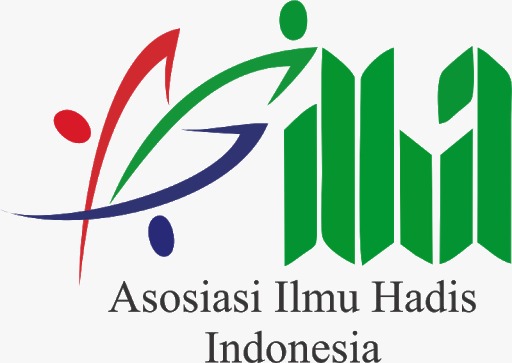Asbāb al-Wurūd dan Double Movement: Menghidupkan Eksistensi Hadis di Era Modern
DOI:
https://doi.org/10.32506/johs.v5i1-01Keywords:
asbāb al-wurūd, hadith, double movementAbstract
This paper discusses the analysis of the concept of asbāb al-wurūd in hadith based on the thoughts of Lenni Lestari, Widia Putri, and Zakiyah, along with their colleagues. According to Lenni Lestari, the study of asbāb al-wurūd focuses primarily on the sources behind the emergence of the hadith, distinguishing between the sources of knowledge of asbāb al-wurūd and the sources of the events themselves. Meanwhile, Widia Putri emphasizes that asbāb al-wurūd plays a central role in shaping a solid understanding of Islam, as it serves as the contextual spirit in interpreting hadith texts. On the other hand, Zakiyah and her colleagues propose that a study based on the theory of double movement should be conducted to ensure the continued relevance of hadith in modern life. This research aims to review the relevance of Lenni Lestari, Widia Putri, and Zakiyah's ideas in underscoring the importance of the asbāb al-wurūd methodology as a tool to discover the ideal moral principles contained in hadith and to actualize them in the context of contemporary realities. To achieve this goal, this study employs a library research method with a qualitative approach. The results indicate that to revive the existence of hadith, a mechanism of double movement is necessary: returning to the socio-historical context of the Prophet's time to uncover the moral principles of hadith, and then bringing those principles into present-day reality through the process of contextualizing values. With this approach, hadith can maintain its relevance and vitality in the face of changing times.
Downloads
References
Abdul Mustaqin. (2016). Ilmu Ma’anil Hadis. Idea Press.
Al-Dimasyqi, I. H. (n.d.). Al-Bayan wa al-Ta’rif fi Asbab Wurud al-Hadis al-Syarif. Dar alKutub al-‘Ilmiyyah.
Al-Haddad, U. (2016). Ijtihad dan Beberapa Ide Pembaruan dalam Fikih Islam. Ahkam: Jurnal Ilmu Syariah, 16(1), 1–20.
An-Na’im, A. A. (2019). Decolonizing Islamic Studies: A Global Perspective. Oxford University Press.
Brown, J. A. C. (2009). Hadith: Muhammad’s Legacy in the Medieval and Modern World. Oneworld Publications.
Creswell, J. W. (2018). Research Design: Pendekatan Metode Kualitatif, Kuantitatif, dan Campuran (A. Fawaid & R. K. Pancasari (penerj.); 4 ed.). PUSTAKA BELAJAR.
Duderija, A. (2018). The Imperative of a Contextual Theology and Hermeneutics: A Case for Progressive Islam. Theology and Society, 7(1), 49–70.
Fadli, A. (2014). Asbāb al-wurūd: Antara Teks dan Konteks. Jurnal al-Hikam, 7(2).
Fazlur Rahman. (1964). Islamic Methodology in History (2 ed.). Islamic Research Institute.
Hallaq, W. B. (2015). The Origins and Evolution of Islamic Law. Cambridge University Press.
Kamali, M. H. (2017). Issues in the Understanding of Jihad and Ijtihad: An Overview. Journal of Islamic Studies and Culture, 5(1), 1–10.
Lestari, L. (2015). Epistemologi Ilmu Asbāb al-wurūd Hadis. Jurnal Studi Ilmu-Ilmu alQur’an dan Hadis, 16(2).
Miles, M. B., Huberman, A. M., & Saldana, J. (2014). Qualitative Data Analysis: A Methods Sourcebook (3 ed.). SAGE Publications Inc.
Moleong, L. J. (2019). Metodologi Penelitian Kualitatif (Edisi Revisi). Remaja Rosdakarya.
Motzki, H. (2010). The Origins of Islamic Jurisprudence: Meccan Fiqh before the Classical Schools. Brill.
Muin, M. (2013). Pemahaman Komprehensif Hadis melalui Asbāb al-wurūd. Jurnal Addin, 7(2).
Nasrulloh. (2014). Rekonstruksi Definisi Sunah sebagai Pijakan Kontekstualitas Pemahaman Hadis. Jurnal Ulul Albab, 15(1).
Nawir, M. (2016). Rekonstruksi Pemahaman Hadis (Analisis Terhadap Cakupan Hadis Dalam Fatwa MUI Tentang Kesetaraan Gender). Jurnal Rusyan Fikr, 12(1).
Putri, W. (2020). Asbāb al-wurūd dan Urgensinya dalam Pendidikan. Jurnal al-Tarbawi al-Haditsah, 4(1).
Qudsy, S. Z. (2020). Model-Model Penelitian Hadis Kontemporer. LKiS.
Rahman, F. (1982). Islam and Modernity: Transformation of an Intellectual Tradition. University of Chicago Press. https://books.google.co.id/books?id=FJcyIeHeeZwC&hl=id&source=gbs_similarb
ooks
Ramadan, T. (2009). Radical Reform: Islamic Ethics and Liberation. Oxford University Press.
Saeed, A. (2006). Interpreting the Qur’an: Towards a Contemporary Approach. Routledge.
Wahdah, Y. A. (2021). Hermeneutika Double Movement Fazlur Rahman Dalam Studi Hadis. Jurnal Kajian Al Quran Dan Hadis, 2(2).
Zakiyah, Z., Saputra, E., & Alhafiza, R. G. (2020). Rekonstruksi Pemahaman Hadis dan Sunnah Menurut Fazlur Rahman. Mashdar: Jurnal Studi Al-Qur’an dan Hadis, 2(1), 19–36. https://doi.org/10.15548/mashdar.v2i1.1294
Zed, M. (2004). Metode Penelitian Kepustakaan. Yayasan Obor Indonesia
Downloads
Published
Issue
Section
License
Copyright (c) 2022 Zakiyan Rifqa (Author)

This work is licensed under a Creative Commons Attribution-ShareAlike 4.0 International License.















